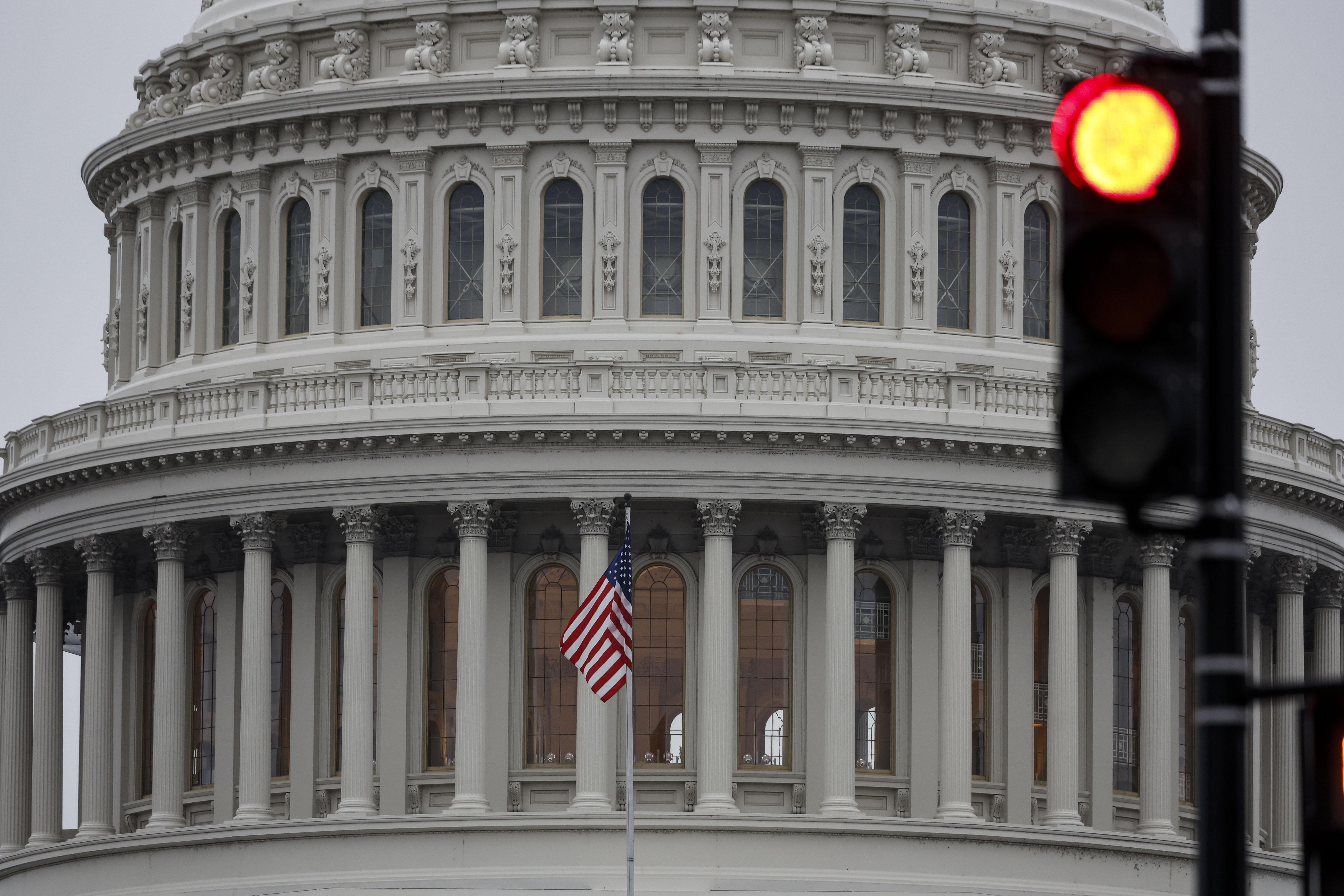Is the policy of infinite US debt sustainable?
- By Tom Fowdy
 0 Comment(s)
0 Comment(s) Print
Print E-mail China.org.cn, May 15, 2023
E-mail China.org.cn, May 15, 2023
The U.S. Capitol building is seen in Washington, D.C., the United States, on Jan. 19, 2023. [Photo/Xinhua]
At present, the United States Federal Government has a national debt of $31.4 trillion, which is higher than the gross domestic product (GDP) of the country itself. The surge in debt can be attributed to an increasing scope of government spending, which currently amounts to $1.1 trillion a year. Policy decisions, such as the size of the U.S. military budget ($842 billion) and the country's recent multi-trillion-dollar stimulus policies to try and revive the economy from the impact of the COVID-19 pandemic, have only made the debt worse.
Typically, the U.S. government and the public worry little about its national debt. This is because the traditional strength of the U.S. dollar as a global reserve currency, combined with its ability to draw in global capital, gives the U.S. almost infinite resources, provided its economy grows in tandem. However, the U.S. government nonetheless also has an approved legal "debt ceiling," which is authorized by Congress, which holds the constitutional power to oversee the U.S. budget. As it happens, the current debt ceiling is also capped at $31 trillion, meaning the U.S. government must negotiate with the House of Representatives in order to elevate it. However, the Republican-controlled House, which is eyeing an opportunity to politically undermine the President and force concessions from him, has shown little interest in doing so.
This poses the question, how sustainable is the ever-escalating growth of U.S. national debt? While it is likely, amidst some political theater, that the two parties will reach a compromise for the greater national good, nevertheless, the ever-growing portfolio of U.S. national debt will become a growing economic and political liability for the country. This is especially true if other nations seek to shift away from reliance on the U.S. dollar, which, as a reserve currency, has held a lopsided impact on developing countries who are often crippled by debt reliance on the USD, while Washington is able to exert privileges for itself.
Recently, the U.S. government's monetary policy has been disastrous. Seeking "short-term kicks" as opposed to long-term gains, politicians overheated the money supply by pumping trillions of dollars into the economy in a bid to force restart spending, which triggered a tidal wave of inflation. Upon facing this, the federal reserve then implemented multiple interest rate increases, which have resulted in killing U.S. GDP growth and sent negative ripples across the global financial system, toppling a number of large banks while bringing debt crises to several developing countries.
Despite these obvious negative consequences, manifested through the failures of Silicon Valley Bank and First Republic Bank, to name just two, the Federal Reserve has continued this policy, denying that there is a crisis at hand. Despite the poor economic climate also having a negative impact on U.S. national debt, mainly as spending increases faster than tax receipts, the country again finds itself marred in the domestic gridlock of its increasingly confrontational, divisive, and polarized party politics, which, rather than seek a straightforward solution to the debt ceiling issue, will likely find a way to weaponize it as a means of forcing one party's agenda on the other.
So far, the new Republican-elected House of Representatives, who claimed victory in November, have not yet taken the opportunity to pursue a conflict with Biden. However, as it is now the norm for every President to experience such when the House is controlled by the opposing party, one can guarantee it will happen. As one recent example, from 2018-2019 the U.S. experienced a "government shutdown" as Congress sought to block authorization for Trump's wall funds, which lasted 35 days. These confrontations have become standard as U.S. governance becomes more dysfunctional, which may also add short-term economic harm to the economy. Spending, of course, is a huge political football as it allows the House to dictate "what" and "how much" things the government receives, allowing them to attack the executive branch's pet projects.
Given this, while it remains highly unlikely that the debt ceiling issue will end in disaster, it is nonetheless becoming a larger and larger political liability as it continues to grow unfettered. As it is, the U.S. economy is in a poor situation, something you would never read in the mainstream media, and long-term shifts away from the U.S. dollar toward "de-dollarization" may reshape global markets in ways that fundamentally undermine America's bid to float itself on infinite debt. Even if there is no feasible outcome for decades, it is certain that such debt will continue to grow until, one day, there may be no easy way out, especially given the current toxic nature of U.S. party politics.
Tom Fowdy is a British political and international relations analyst and a graduate of Durham and Oxford universities. For more information please visit:
http://www.china.org.cn/opinion/TomFowdy.htm
Opinion articles reflect the views of their authors, not necessarily those of China.org.cn.







Go to Forum >>0 Comment(s)